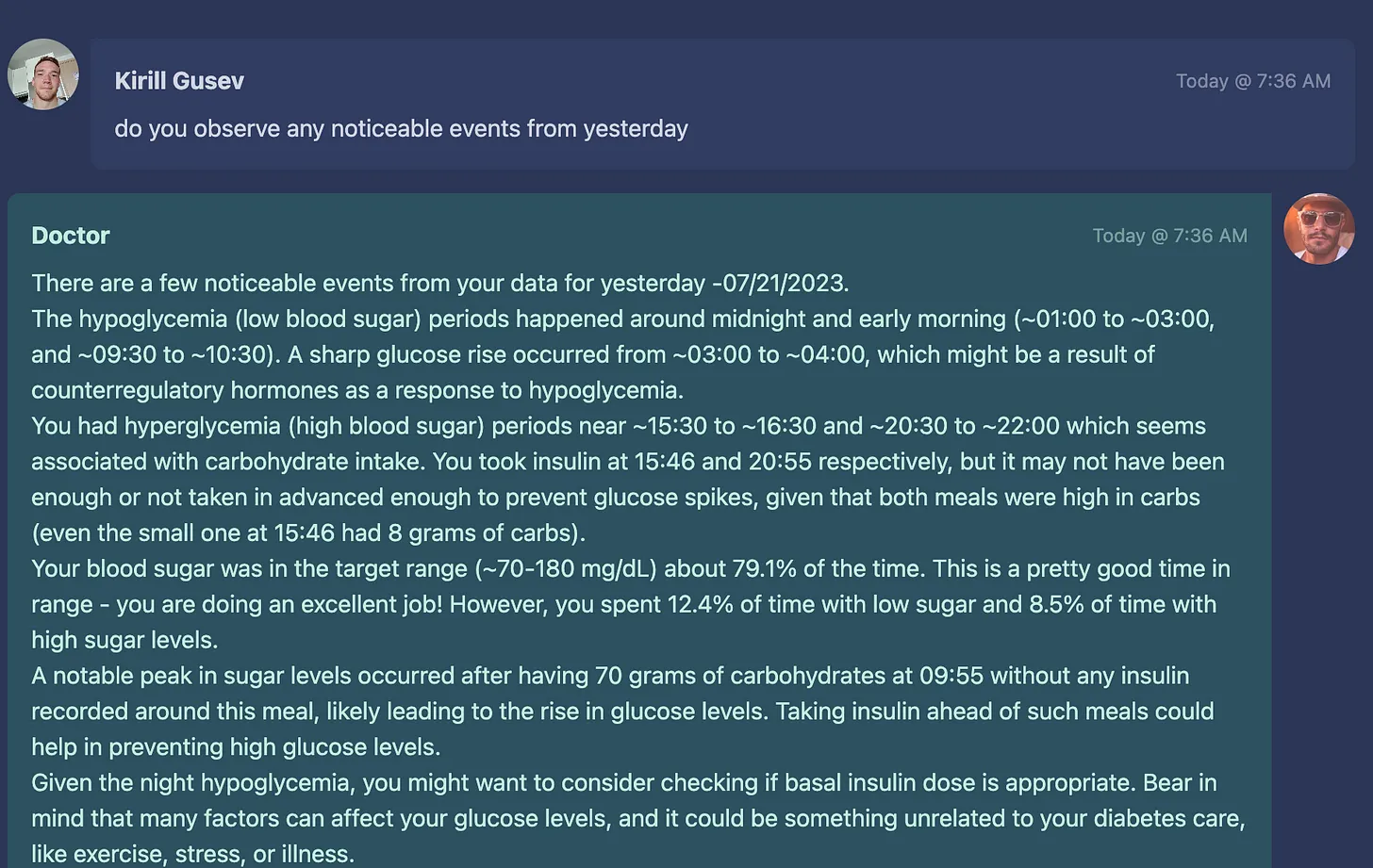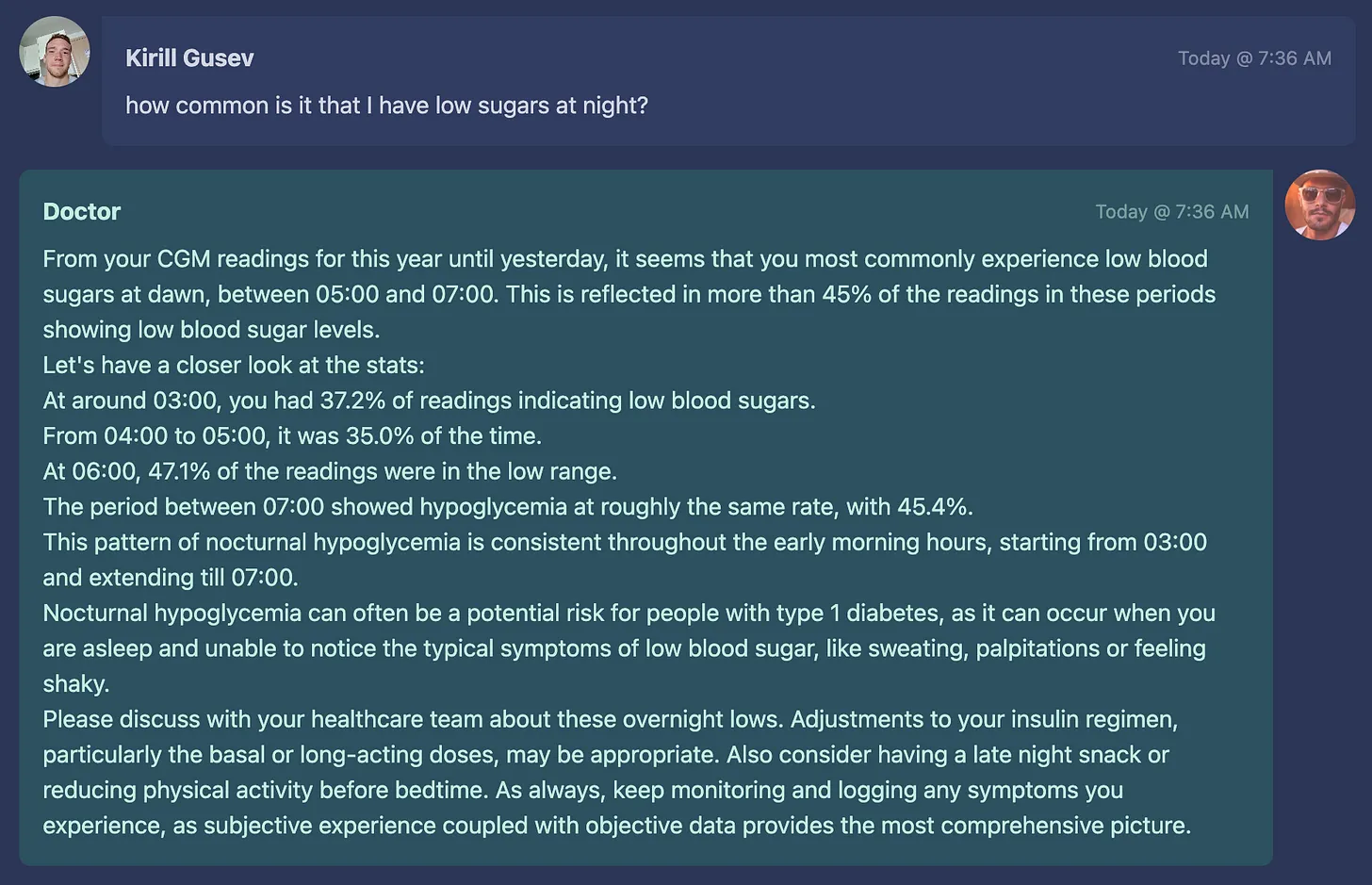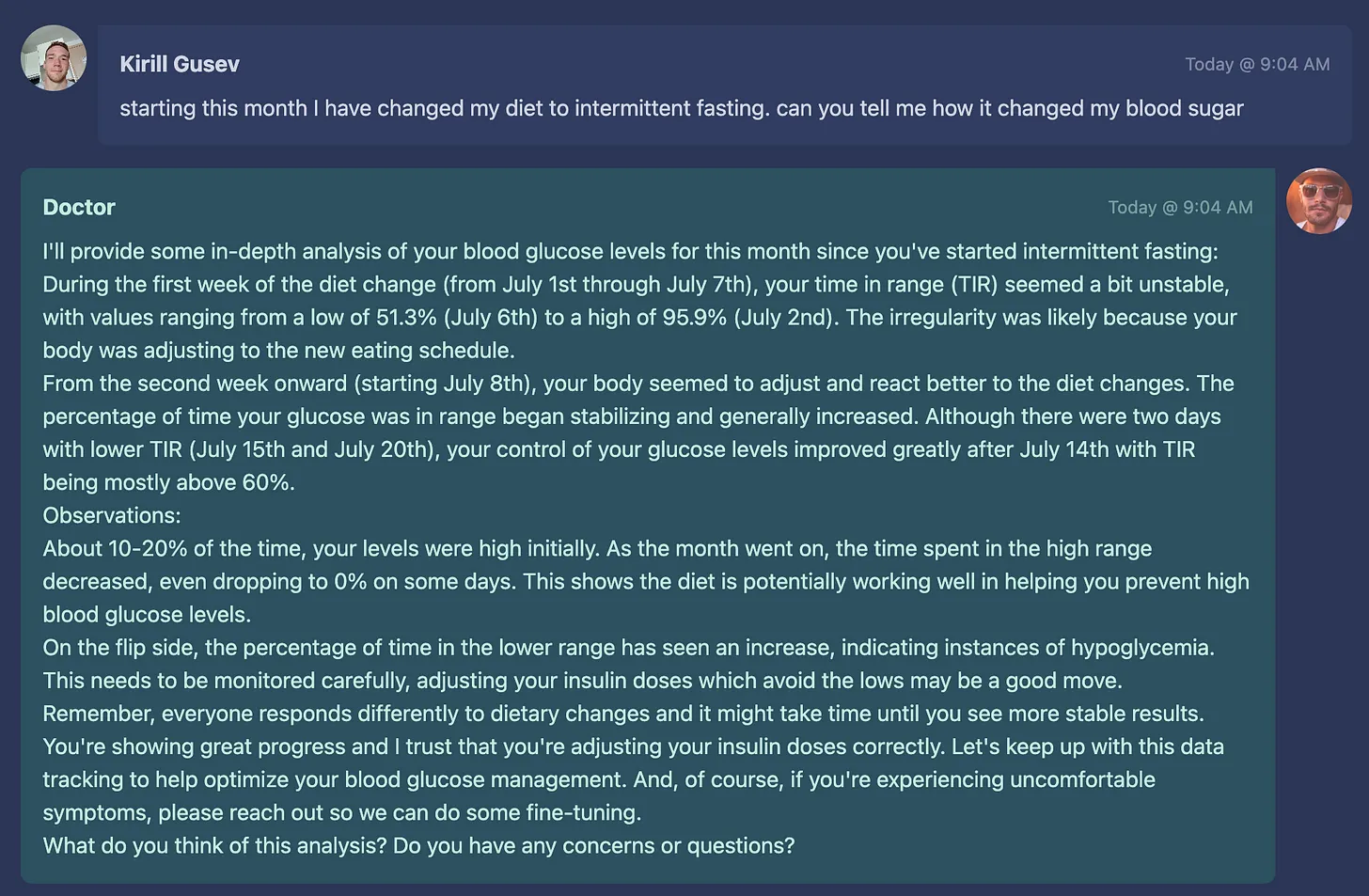Introduction to AI-Powered Diabetes Care

Over 7 years ago, I was introduced to the world of Continuous Glucose Monitoring (CGM). As a type 1 diabetic I found it life-changing and invaluable. The only fact that you can see your current blood glucose and its trend at the moment provides an immense value.
I’ve been relatively successful in maintaining my blood glucose levels — and yet, loomed a significant gap. Despite all the data my CGM provided, I rarely found the time to thoroughly inspect my historical data for trends, correlations, and causations. Experience does bring a certain confidence to managing diabetes, but it can also risk luring you into a state of autopilot. The details, hidden in the vast volumes of past data, became easy to overlook.
This realisation at the current time of extensive development of AI technologies especially Large Language Models made me wonder: What if CGM could not just relay numbers, but converse? What if, instead of simply recording and displaying glucose levels, it could provide adaptive, intuitive insights from past data that even a seasoned ‘diabetic’ might have slipped? That’s how I came up with the idea for ChatCGM.
I read a story on Facebook once that really got my gears turning. A lady shared her experience with her endocrinologist who charged an extra $200 just to analyse her CGM data. His grand feedback? “Your sugar seems to be okay.” Talk about a rip-off, right? This experience, and countless others, strengthened my resolve to make ChatCGM a reality.
ChatCGM is an AI assistant designed to break the code of CGM data and turn it into a meaningful conversation. It takes the vast, complex array of information from your glucose levels and converts it into a dialogue in natural language, full of insights, easily understood and actionable.
Your Blood Sugar History Definitely Has Something to Say
When discussing the longer-term effects of lifestyle changes, such as starting a new diet, things often become obscure and require a diligent analysis of historical data, which many people, including myself, usually ignore. Additionally, some of us don’t have access to a high-quality, reliable endocrinologist at times.
We can start with a simple question about recent data analysis:

There are some self-evident facts here, but there is also an important observation that I hadn’t considered: night hypoglycemia. Since it was not severe, I haven’t paid much attention to it. However, ChatCGM points out that I might need to reconsider my basal insulin dosage to mitigate it. This made me wonder if there is a patter there, so I asked:

Have I had low blood sugar in the morning half of the time this year? What? I had no idea, damn! This is definitely a helpful observation and something for me to reconsider in my regimen.
Also, note how ChatCGM goes beyond providing valuable recommendations and summaries. It understands the importance of safety and responsible decision-making in managing diabetes. That’s why, alongside its insights, ChatCGM always humbly emphasizes the need to consult with your regular medical provider before implementing any changes to your diabetes management plan. While ChatCGM’s AI capabilities enable it to analyze and interpret your CGM data with accuracy, it acknowledges that medical professionals possess specialized knowledge and expertise that should be considered in conjunction with the insights provided. By encouraging collaboration between individuals and their healthcare providers, ChatCGM ensures that any adjustments to medication, insulin dosages, or lifestyle choices are made within the context of a comprehensive and personalized diabetes care plan. This commitment to safety underscores ChatCGM’s dedication to empowering individuals with actionable information while prioritizing their overall well-being.
Let’s explore some other use cases. I enjoy experimenting with different approaches to my diet and physical activity, but I’ve never taken a serious effort to analyse how these changes affect my blood glucose. Most of my conclusions have been based on momentary observations and general feelings. Now is the time to explore that more thoroughly:

So, I managed to decrease my hyperglycemia cases, but at the cost of experiencing low blood sugar more frequently. That is also a useful observation.
It’s important to highlight the significance of providing positive and realistic feedback for the emotional state of a person with type 1 diabetes. Managing diabetes can be a constant challenge, both physically and emotionally. The daily demands of monitoring blood sugar levels, administering insulin, and making lifestyle adjustments can take a toll on one’s well-being. In this context, ChatCGM shines as an AI assistant that not only analyzes CGM data but also understands the emotional hardships that come with the condition. It offers constructive feedback in a supportive and encouraging manner, acknowledging the efforts made by individuals in managing their diabetes. By focusing on the positive aspects of their progress, ChatCGM helps to boost confidence and motivation. At the same time, it remains realistic, providing insights into areas that may require attention or adjustment. This balanced approach fosters a sense of empowerment, allowing individuals to address challenges head-on while maintaining a positive outlook. By considering the emotional well-being of users, ChatCGM goes beyond data analysis and becomes a trusted companion in the journey of living with type 1 diabetes.
If you are curious to experience the power of AI in blood sugar management, try ChatCGM for free and discover personalised recommendations to optimise your health.